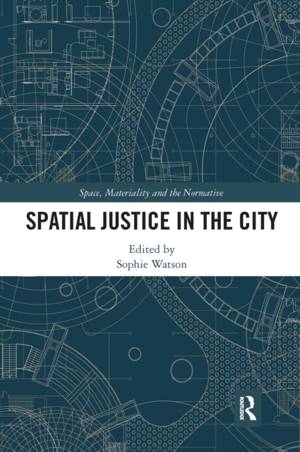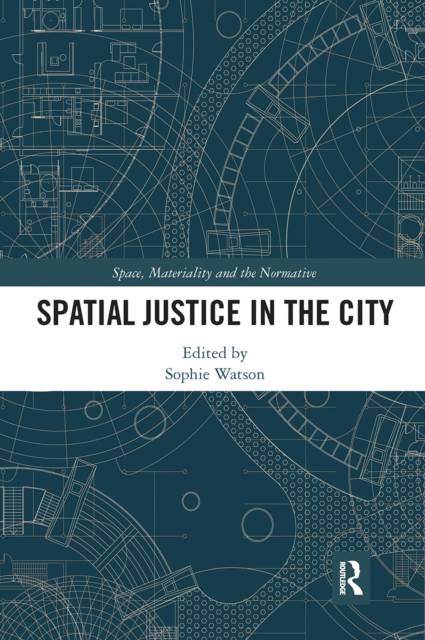
- Afhalen na 1 uur in een winkel met voorraad
- Gratis thuislevering in België vanaf € 30
- Ruim aanbod met 7 miljoen producten
- Afhalen na 1 uur in een winkel met voorraad
- Gratis thuislevering in België vanaf € 30
- Ruim aanbod met 7 miljoen producten
Spatial Justice in the City
Omschrijving
In the context of increasing division and segregation in cities across the world, along with pressing concerns around austerity, environmental degradation, homelessness, violence, and refugees, this book pursues a multidisciplinary approach to spatial justice in the city.
Spatial justice has been central to urban theorists in various ways. Intimately connected to social justice, it is a term implicated in relations of power which concern the spatial distribution of resources, rights and materials. Arguably there can be no notion of social justice that is not spatial. Philippopoulos-Mihalopoulos has argued that spatial justice is the struggle of various bodies - human, natural, non-organic, technological - to occupy a certain space at a certain time. As such, urban planning and policy interventions are always, to some extent at least, about spatial justice. And, as cities become ever more unequal, it is crucial that urbanists address questions of spatial justice in the city. To this end, this book considers these questions from a range of disciplinary perspectives. Crossing law, sociology, history, cultural studies, and geography, the book's overarching concern with how to think spatial justice in the city brings a fresh perspective to issues that have concerned urbanists for several decades. The inclusion of empirical work in London brings the political, social, and cultural aspects of spatial justice to life.
The book will be of interest to academics and students in the field of urban studies, sociology, geography, planning, space law, and cultural studies.
Specificaties
Betrokkenen
- Uitgeverij:
Inhoud
- Aantal bladzijden:
- 180
- Taal:
- Engels
- Reeks:
Eigenschappen
- Productcode (EAN):
- 9781032086361
- Verschijningsdatum:
- 30/06/2021
- Uitvoering:
- Paperback
- Formaat:
- Trade paperback (VS)
- Afmetingen:
- 156 mm x 234 mm
- Gewicht:
- 263 g

Alleen bij Standaard Boekhandel
Beoordelingen
We publiceren alleen reviews die voldoen aan de voorwaarden voor reviews. Bekijk onze voorwaarden voor reviews.










